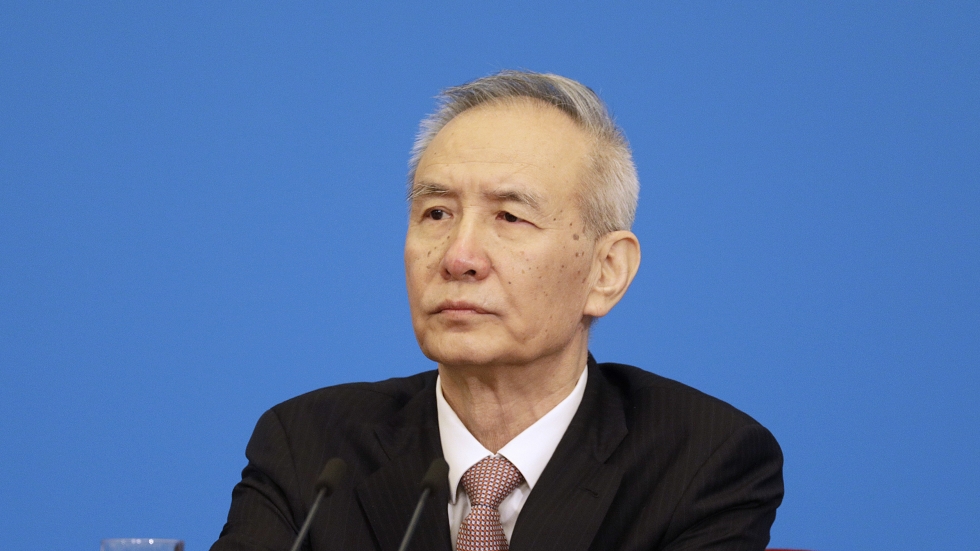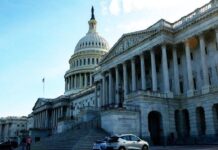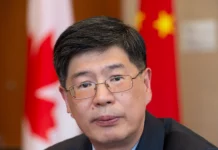BEIJING: China’s Vice Premier and top trade negotiator Liu He will travel to the US on January 30-31 to hold crucial high-level talks as the world’s two largest economies are holding negotiations to resolve their bitter trade dispute ahead of a March 2 deadline.
Liu’s scheduled visit follows lower-level negotiations held in Beijing last week aimed at resolving the trade war that last year saw the two sides imposing tariffs on more than USD 300 billion in total two-way trade.
China’s Commerce Ministry said on Thursday that Vice Premier Liu will travel to the US on January 30-31. He will hold talks with US trade representative Robert Lighthizer and review the recent official level talks on a host of issues to work out an agreement to end the trade war.
Both sides had expressed optimism after three-day talks held here in the second week this month. The two-day talks prolonged by a day raising hopes of a deal.
US President Donald Trump has been pressing China to bring down the USD 375 billion trade deficit in the bilateral trade, which he attributes to unfair trade practices by Beijing.
Officials say talks are expected to deliver specific commitments on Trump’s demand that China expand market access for the US in China, improve protection of intellectual property rights (IPR) and reduce the trade surplus with the US, but it would take time to reform state-owned firms another major source of friction.
Trump, earlier said the trade talks with Beijing were going on “very well”.
Both countries last year had slapped tit-for-tat additional tariffs on billions of dollars’ worth of each other’s exports.
Trump had earlier warned that if a deal is not reached by March 1, the end of the 90-day grace period, the US will increase the tariffs on the USD 200 billions of goods from 10 per cent to 25 per cent.
The escalating trade war raised concerns in China as its economy was on the downward trend amid efforts by the government to rejig the export-dependent economy to that of relying more on domestic consumption.
Chinese economy grew at 6.5 per cent in the third quarter posting the slowest growth since 2009 as it grappled with the intensifying trade war with US and the mounting local governments’ debt which rose to USD 2.58 trillion.
Adding to the worries, China’s stock market became the world’s worst performer last year, ending with a loss of 28 per cent.
American companies like Apple and FedEx have already attributed lowered revenue estimates to the trade war with China. And many large American companies like Caterpillar, General Motors and Boeing view China’s market as critical to future growth.
Also for the first time in recent sales car sales in China fell six per cent to 22.7 million units in 2018, according to the state-run China Passenger Car Association (CPCA).
China is facing the daunting task of presenting a credible plan to meet Trump’s demands to cut down the trade deficit. In recent weeks, China has showed some signs of flexibility over acceding to the American demands.
Newly-released official data said China’s exports fell to USD 221.5 billion in December registering biggest plunge in two years amid the trade war with US, highlighting the continued slowdown of the world’s second largest economy.
Both exports and imports fared worse than expected in December, the General Administration of Customs (GAC) said on Monday.
The figures suggest the negative impact of the trade war may be greater than Chinese authorities previously estimated, and point to the need for a more rapid and larger economic stimulus to stabilize growth.
Total exports fell to USD 221.25 billion in December, down 1.4 per cent from November, and 4.4 per cent from the same month in 2017.
China has softened its stand by offering a mix of concessions by resuming purchases of US soybeans, suspended punitive tariffs on imports of US cars and toned down its ‘Made in China 2025’ plan, which aimed at breaking the country’s reliance on foreign technology and pull its hi-tech industries up to western levels.
China also proposed clear bans on forced technology transfer in new draft foreign investment legislation. PTI







